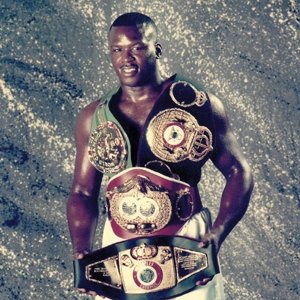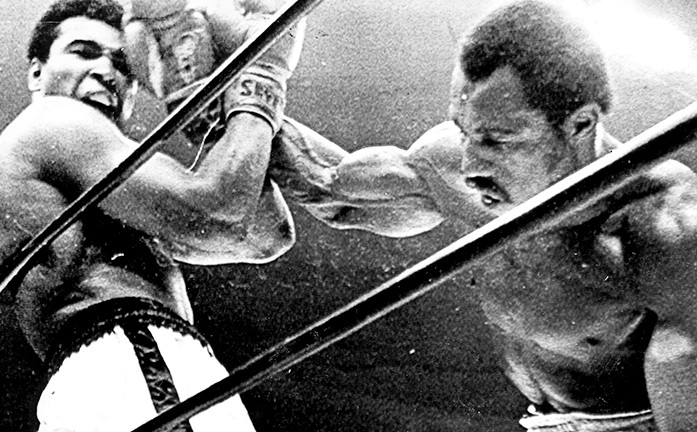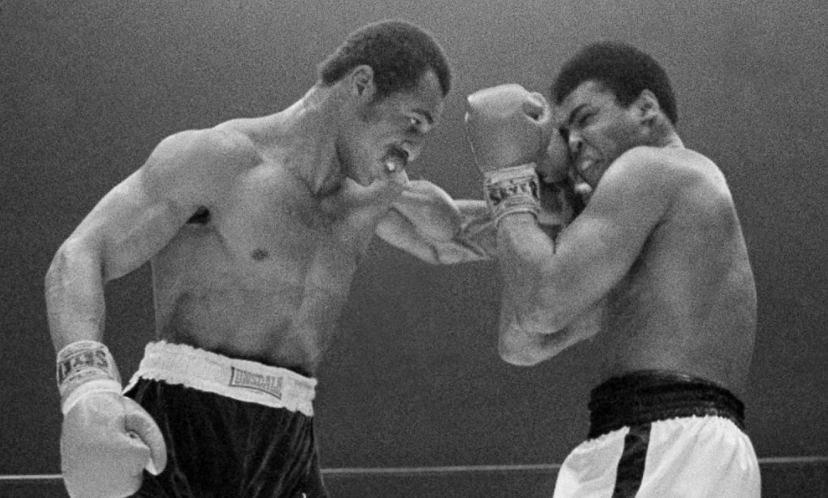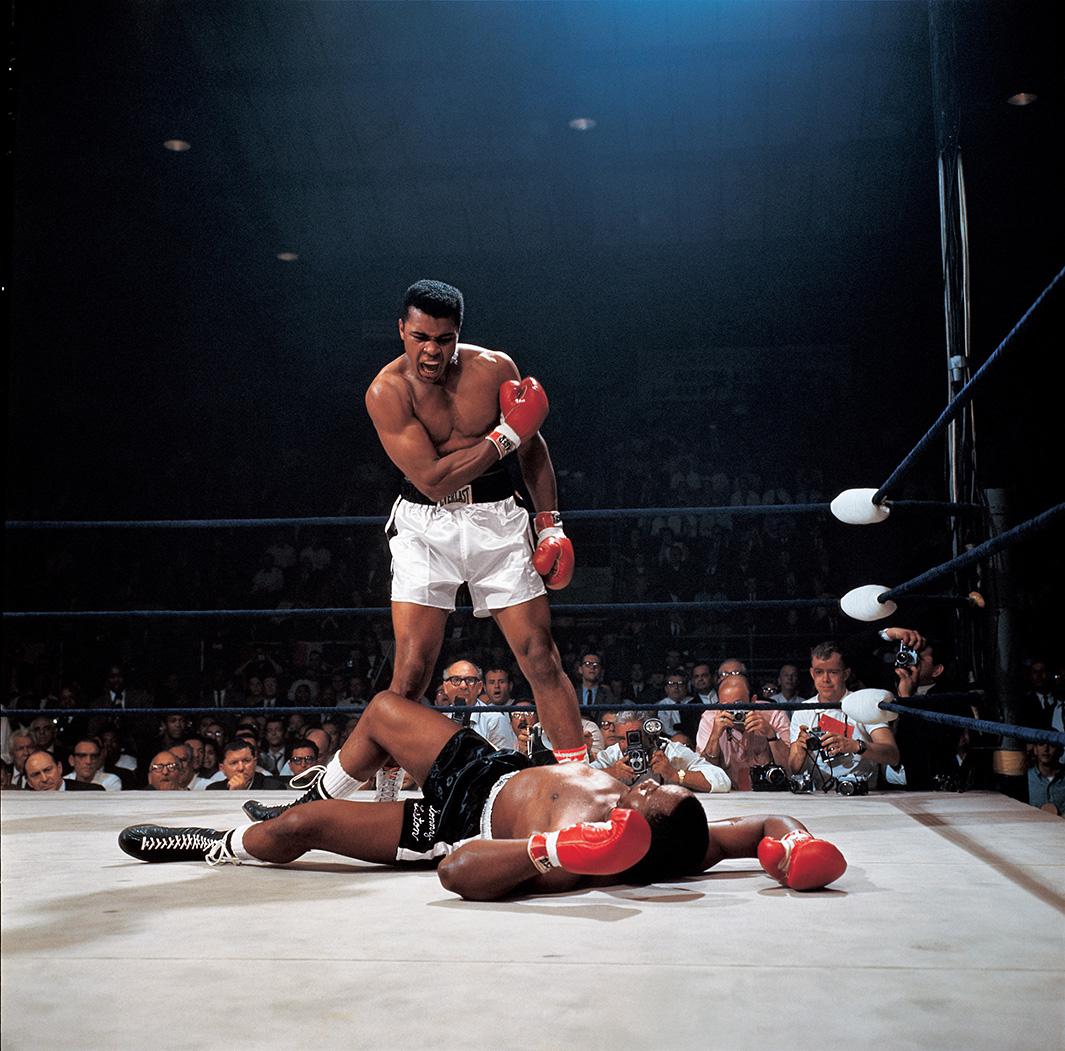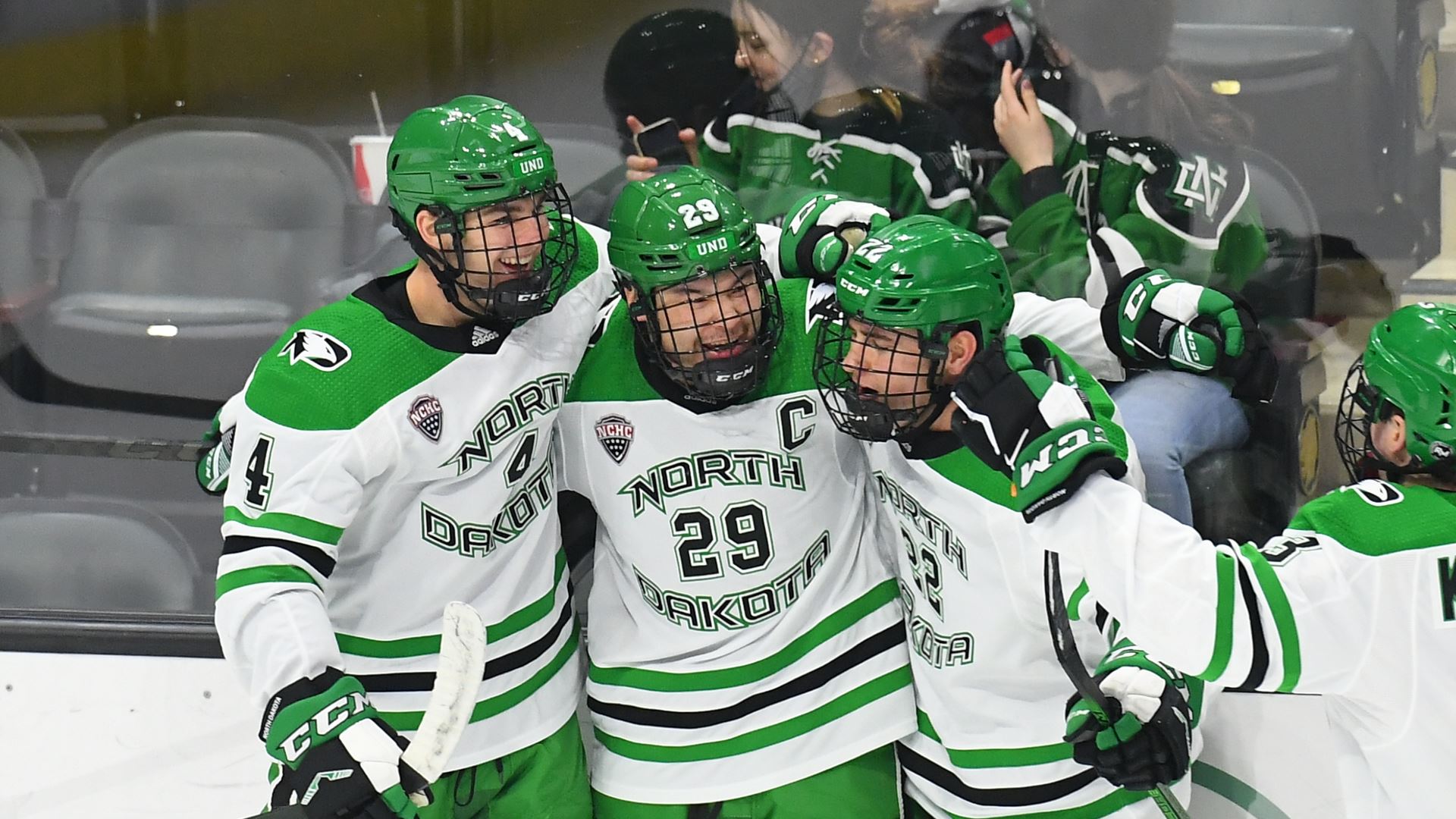Buster Douglas pulled off one of the biggest upsets in sports history.
An uppercut and three follow-up punches made Buster Douglas a household name. On February 11, 1990, in Japan’s Tokyo Dome, the underachieving journeyman picked himself up off the canvas to knock out Mike Tyson — the heavyweight champion of the world. It was the most shocking upset in the history of prize fighting and changed the lives of both men forever.
Neither fighter was ever the same: Douglas lost in his first title defense and never contended again, while Tyson spent three years in prison for raping Desiree Washington.
Born in Columbus, Ohio, April 7, 1960, James Douglas was a skilled athlete. His father, William “Dynamite” Douglas, was a former national amateur boxing champion who fought professionally in the 1960s and 70s. A factory worker by day, William Douglas trained at night in a boxing gym he ran in Columbus.
A feared middleweight who won 41 fights over 13 years, Dynamite Douglas introduced his son to the Sweet Science at ten, but boxing wasn’t Buster’s passion. “That boy didn’t want to box,” said Douglas’ grandmother, Sarah Jones. “Boxing was just the only way he knew of feeling close to his daddy.”
Possessing quick feet and soft hands, Douglas played football and basketball at Linden McKinley High School, where he led the Panthers to the Ohio AAA state basketball title in 1977. He played junior college basketball, attending three schools in three years before flunking out and returning to Columbus.
With his father serving as his trainer and handler, Douglas took up boxing at 20. He made his professional debut May 31, 1981, with a third-round knockout of Dan O’Malley. Douglas won 18 of his first 20 bouts – mostly against journeyman – before carelessly allowing himself to be knocked out by Mike White in December 1983 after dominating White for nine rounds.
In November 1984, Douglas was scheduled to fight future WBC champion Trevor Berbick. Three days before the match, Berbick pulled out and was replaced by Randall “Tex” Cobb. Douglas dispatched Cobb in ten rounds, then beat Greg Page to earn a shot at Tony Tucker for the TBF heavyweight crown.
Despite having a fast, sharp jab and powerful right hand, Douglas was not in love with boxing — and it showed. A sensitive man unsuited to his profession, his attitude toward training and nutrition was lackadaisical. Buster showed glimpses of promise but also displayed a lack of heart and discipline.
Douglas and Tucker met in May 1987. For most of the fight, Buster got the better of the champ, but in the tenth round of a scheduled 15-rounder, he tired, retreated to the ropes, and covered up until the fight was stopped on a TKO. After watching him quit, Bill Douglas gave up on his son and never watched him fight again [Dynamite Douglas died in 1999].
Following the Tucker fight, Douglas won his next six matches, including unanimous decisions over Berbick and future WBC champion Oliver McCall. Ring magazine ranked Douglas as the number seven heavyweight in the world. Looking for a tune-up bout before meeting then-undefeated and top-ranked contender Evander Holyfield, undisputed heavyweight champion Mike Tyson agreed to face Douglas in Tokyo in February 1990.
In the second half of the 1980s, Mike Tyson was the baddest man on the planet. The youngest fighter ever to win a heavyweight title, he won his first 19 professional fights by knockout, a dozen of them in the first round. Considered perhaps the most ferocious fighter to step into a ring, “Iron Mike” was 37-0, with 33 stoppages, coming into his bout with Douglas.
He had knocked out two of his previous three opponents in 91 and 93 seconds, respectively, and was deemed invincible. Tyson was such a huge favorite over Douglas that only one casino — the Mirage — was willing to put odds on the fight, installing the undefeated champion as a 42-1 favorite.
After being discarded by his father, Douglas was abandoned by his wife, who left Buster a few months prior to the Tyson fight. Then, just 23 days before the biggest bout of his life, Buster’s mother, Lula Pearl, suddenly died of a stroke. Grieving and alone, the 29-year-old challenger brought his 29-4-1 record to the Tokyo Dome to face Tyson.
From the beginning of the fight it was apparent that Douglas was not afraid. Employing a quick and accurate jab, he kept Tyson at bay. Taller and with a longer reach [at 6”4”, Douglas had six inches on Tyson], Buster’s right jabs forced the champ’s left eye to nearly swell shut.
Tyson’s corner was unprepared; they hadn’t brought an endswell or ice packs. With seconds remaining in the eighth round, Tyson landed an uppercut that sent Douglas to the canvas. Displaying courage and determination that had been lacking throughout his career, Douglas got up after a nine-second count, unfazed.
Knowing he was behind in points, Tyson came out in the ninth round determined to end the challenger’s bid for his title. He attacked, but Douglas closed in and unleashed a vicious attack, hurting Tyson.
The once seemingly-invincible champion barely survived the round. In the tenth, Douglas stunned Tyson with a devastating uppercut, then followed with a barrage that knocked Iron Mike to the mat for the first time in his career. The dazed champion fumbled for his mouthpiece and attempted to get back on his feet but referee Octavio Meyran counted him out.
It what has come to be regarded as the biggest upset in boxing history, James Douglas beat up Mike Tyson, landing 230 punches to Tyson’s 101. “This makes Cinderella look like a sad story,” said HBO boxing analyst Larry Merchant after the fight.
While Tyson’s camp wanted a rematch, Douglas decided to take a $ 25 million payday and make his first title defense against Holyfield in October 1990. Douglas came into the bout at 246 pounds, 15 pounds heavier than he had been for the Tyson fight just eight months earlier. Sluggish and soft, Douglas was thoroughly dominated by Holyfield, who knocked the champion out in the third round. His brief reign over, Douglas retired after the fight.
Having lost his support system, Douglas collapsed. The pressure of being heavyweight champion was too much, and he squandered the opportunity. “The fight in me was gone,” said Douglas later. “I was distraught. I was just in a shell. I lost my best friend, my mother. I had no one to turn to.”
Aimless and bored, Buster ballooned to more than 400 pounds and developed diabetes. After almost dying during a diabetic coma, he decided to return to boxing. Following a six-year hiatus, he climbed back into the ring, but never again challenged for the heavyweight title. Douglas’ last fight came February 19, 1999 – nearly nine years to the day after he defeated Mike Tyson — when he beat Andre Crowder by TKO in the first round. Mr. Douglas retired following the Crowder fight with a career record of 38-6-1, 25 by knockout.
On this date in 1998, James Douglas knocked out Warren Williams in the first round of their heavyweight bout at the Bank of America Centre in Boise, Idaho. It was Buster’s 37th professional win and the second-to-last fight of his career.

